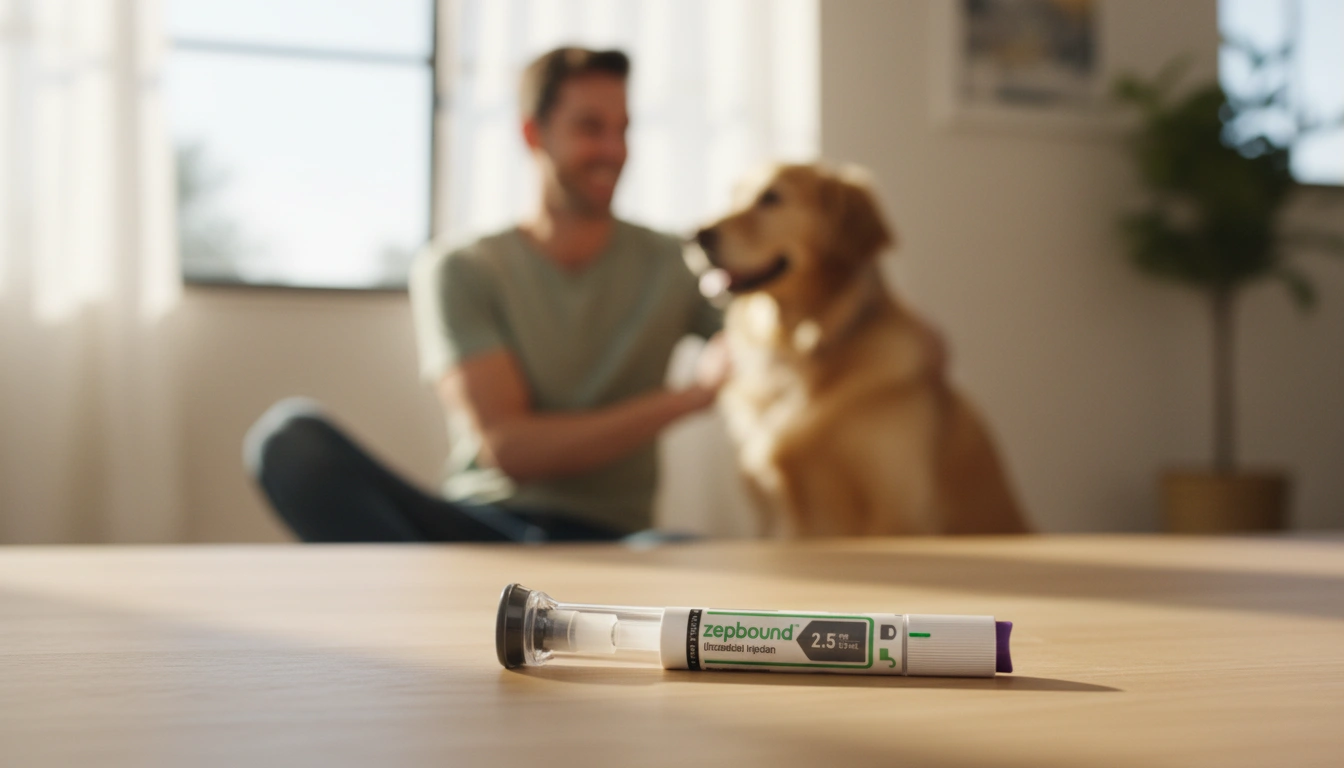Why Do Zepbound Doses Increase? Understanding the Reasons Behind Dosage Adjustments

In the journey toward effective weight management, many individuals often find themselves asking why certain medications, like Zepbound, require adjustments in dosage over time. If you’re navigating the world of weight loss solutions, understanding the rationale behind these increases can empower you to make informed decisions about your health.
Research shows that about 70% of American adults are considered overweight, and many face challenges in managing their weight effectively. This makes the pursuit of effective weight management solutions more relevant than ever. Zepbound, a medication containing tirzepatide, has emerged as a significant option for individuals struggling with obesity and related conditions. However, the question of why dosages increase during treatment is critical for anyone considering or currently using this medication.
In this blog post, we will delve into the science behind Zepbound, the rationale for dose adjustments, and how our personalized weight loss programs at TrimRx can support you in your weight management journey. By the end of this post, you’ll understand the factors influencing dosage increases and how to navigate your weight loss treatment effectively.
Introduction
Imagine embarking on a journey toward a healthier lifestyle, equipped with the right tools and support. As we strive to reach our weight management goals, understanding the mechanisms behind our treatment options is crucial. This is especially true when it comes to medications like Zepbound, which are designed to assist in weight loss through a combination of appetite regulation and metabolic enhancement.
Zepbound, a dual GIP (glucose-dependent insulinotropic polypeptide) and GLP-1 (glucagon-like peptide-1) receptor agonist, is designed to tackle obesity by reducing appetite and encouraging weight loss as part of a broader lifestyle change that includes diet and exercise. However, many individuals may notice that their healthcare providers recommend gradual increases in their dosage over time.
In this article, we will explore:
- The mechanisms of Zepbound and how it works in the body.
- The reasons why healthcare providers may adjust dosages.
- The importance of personalized treatment plans and support systems.
- How TrimRx’s approach to weight loss can help you achieve sustainable results.
By addressing these aspects, we aim to provide a comprehensive understanding of why Zepbound doses increase and how you can effectively manage your journey with this medication.
The Mechanisms of Zepbound
Zepbound operates on the principle of enhancing the body’s natural responses to food intake and energy expenditure. As a dual agonist, it targets two key hormones that play a significant role in regulating appetite and metabolism:
- GLP-1 Receptor Agonism: GLP-1 is a hormone produced in the intestines that stimulates insulin secretion, inhibits glucagon release, and promotes satiety. By mimicking GLP-1, Zepbound helps you feel fuller after meals, reducing overall calorie intake.
- GIP Receptor Agonism: GIP also plays a role in insulin secretion. Its activation by Zepbound enhances the body’s response to glucose, potentially leading to better blood sugar control and weight management.
These mechanisms work together to create a supportive environment for weight loss by reducing hunger and improving metabolic responses. However, the effectiveness of Zepbound can vary between individuals, which is where the need for dosage adjustments comes into play.
Reasons for Dose Increases
1. Initial Tolerance and Response
When starting Zepbound, healthcare providers typically prescribe a low initial dose, often 2.5 mg, to allow the body to adjust to the medication. This cautious approach helps minimize potential side effects, particularly gastrointestinal issues like nausea or diarrhea, which can be common during the initial phase of treatment.
Over the first four weeks, as your body adapts, your healthcare provider may recommend increasing the dosage to 5 mg. This gradual increase is not arbitrary; it’s based on your body's response to the medication and its tolerance level.
2. Individual Weight Loss Progress
As we engage in our weight loss journeys, it’s common to experience plateaus where weight loss slows or even halts. If you've maintained healthy eating habits and a consistent exercise routine but notice that your weight loss has stalled, it may be time to discuss a dose increase with your healthcare provider.
Research suggests that higher doses of Zepbound can lead to more significant weight loss, as they may enhance satiety further and promote better metabolic responses. Your doctor will evaluate your weight loss progress and may recommend an increase to help reignite your progress.
3. Changes in Appetite Control
Over time, some individuals may find that the initial appetite-suppressing effects of Zepbound start to diminish. This can be a natural adaptation of the body as it becomes accustomed to the medication. If you notice that your cravings are returning or that you’re feeling hungrier than when you first started treatment, it may be an indicator that a dose adjustment is necessary.
Your healthcare provider can guide you through this process, ensuring that any changes align with your overall weight management goals.
4. Monitoring Blood Sugar Levels
For patients using Zepbound to manage both weight and blood sugar levels, it’s crucial to monitor your glucose readings regularly. If your blood sugar levels are not meeting your goals despite adhering to your treatment plan, your healthcare provider may suggest a dose increase. This adjustment can help improve glycemic control, leading to better overall health outcomes.
5. Overall Health and Lifestyle Changes
As your journey progresses, you may experience various lifestyle changes that impact your treatment plan. Factors such as increased physical activity, changes in diet, or even fluctuations in weight may warrant a reevaluation of your Zepbound dosage. Your healthcare provider will consider your complete medical history and current health status to determine the best course of action.
The Importance of Personalized Treatment Plans
At TrimRx, we understand that each individual’s weight loss journey is unique. That’s why our approach emphasizes personalized treatment plans that cater to your specific needs, preferences, and health conditions.
Our comprehensive services include:
- Doctor Consultations: We offer personalized assessments to determine the most suitable weight loss strategy for you.
- Medication Management: We collaborate with FDA-registered pharmacies to ensure you receive safe and effective medications tailored to your treatment plan.
- Ongoing Support: Our commitment to your success doesn’t stop after the initial consultation. We provide continuous support through consultations, lab work, and check-ins to monitor your progress.
We encourage you to take our free assessment quiz to see if you qualify for our prescription weight loss medications, including Zepbound. This quiz is designed to help us understand your unique needs and create a personalized treatment plan that works for you.
Take the quiz here: Free Assessment Quiz.
Conclusion
Understanding why Zepbound doses increase is essential for anyone considering or currently using this medication. Adjustments in dosage are typically based on individual responses, progress in weight loss, and overall health considerations. By working closely with your healthcare provider, you can navigate these changes effectively and continue on your path toward a healthier lifestyle.
At TrimRx, we are dedicated to providing compassionate care and innovative solutions for weight management. Our personalized weight loss programs are designed to empower you on your journey, combining the latest medical science with modern technology. Together, we’ll explore the best strategies to help you achieve sustainable weight loss.
If you’re looking for immediate support during your weight loss journey, consider our quick-access supplements, such as:
- GLP-1 Daily Support: Explore GLP-1 Daily Support
- Weight Loss Boost: Check out Weight Loss Boost
These supplements can provide additional support as you work toward your goals.
FAQ
How long does it take for Zepbound to start working?
Zepbound typically begins to work shortly after your first dose, but it may take several weeks to notice significant changes in weight. Regular follow-ups with your healthcare provider can help monitor your progress.
Can I adjust my dosage of Zepbound on my own?
It’s crucial to consult your healthcare provider before making any adjustments to your dosage. Self-adjusting can lead to potential side effects or reduced effectiveness of your treatment.
What should I do if I miss a dose of Zepbound?
If you miss a dose, take it as soon as you remember within four days. If more than four days have passed, skip the missed dose and continue with your regular schedule. Do not take two doses to make up for a missed one.
What side effects can I expect while taking Zepbound?
Common side effects may include nausea, diarrhea, and gastrointestinal discomfort. Most side effects tend to decrease over time, but if you experience severe or persistent symptoms, consult your healthcare provider.
How can TrimRx support my weight loss journey?
TrimRx offers personalized weight loss programs that include doctor consultations, medication management, lab work, and unlimited support to help you achieve sustainable weight loss. Take our free assessment quiz today to get started!
Your weight management journey is unique, and understanding the nuances of medications like Zepbound is crucial to your success. At TrimRx, we are here to support you every step of the way. Together, we can achieve your health and wellness goals.

Transforming Lives, One Step at a Time
Keep reading
Navigating Your Path: How Many Doses Are In Zepbound and What It Means for Your Health Journey
Curious how many doses are in Zepbound? Discover its weekly dosing schedule, available strengths, and titration process for effective weight loss. Learn more!
Navigating Your Zepbound Journey: Understanding Dosing and Expert Guidance
Wondering how to split doses of Zepbound? Learn why it’s unsafe & not recommended. Get expert guidance on Zepbound dosing for safe, effective weight loss with TrimRx. Click to learn more!
Understanding Zepbound Dosing: What is the Lowest Dose Available for Your Weight Loss Journey?
Curious what is the lowest dose of Zepbound available? Learn about Zepbound’s 2.5mg starting dose, titration, and safe use for weight loss. Get expert guidance!



